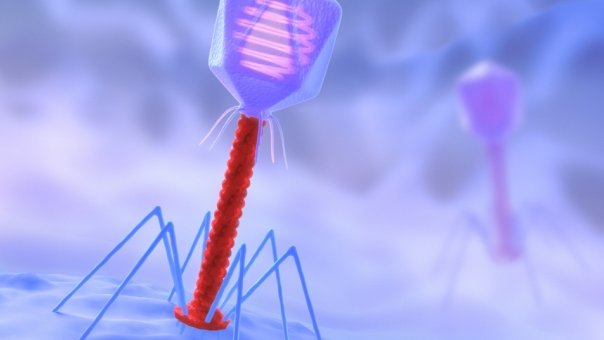New ways to tackle antibiotic resistance – Bacteriophage therapies
26 Nov 2014
Written by Ampliphi Biosciences
With Longitude Prize encouraging development of new diagnostics which have the ability to rapidly identify the cause of an infection, and even its resistance profile, the market for new target-specific antibacterial therapies will open up.
Bacteriophage , viruses which target and infect specific bacteria, and are the most prevalent life form on the planet, honed through evolution to be very specific in their killing effect.
A US biotech company, AmpliPhi Biosciences , with heritage in the UK and Australia, is developing bacteriophage as clinically-tested and properly regulated alternative therapies to tackle antibiotic-resistant infections.
Bacteriophage use the bacteria as a host and replicate inside until the bacteria is destroyed. The bacteriophage will die out naturally once it has destroyed the host, causing no harm to the patient and other bacteria (current antibiotics upset can the balance of the body’s bacteria, which can lead to further infection).
Bacteriophages are unaffected by antibiotic resistance, making the therapy an excellent candidate for antibiotic resistant strains. In addition, when bacteria evolve to resist the bacteriophages, bacteriophage can also evolve to counter this, resulting in resistance that may not be permanent, as with conventional antibiotics. Research has shown that combining bacteriophage and antibiotic treatment can make antibiotics more effective, ‘opening the door’ for drugs, which may not have previously worked alone due to resistance, allowing them to once again reach their full potential.

In the UK, AmpliPhi is working with world-leading scientists at the University of Leicester to develop a phage treatment for Clostridium difficile , a bacteria that causes gastrointestinal infections, especially in hospitals, and which was responsible for over 13,000 infections in the UK alone last year. AmpliPhi also has an ongoing research programme with the Royal Brompton Hospital to develop a treatment for Pseudomonas aeruginosa lung infections which are very common in cystic fibrosis. Its most advanced programme is with the US Army, to target bacteria that cause acute and chronic infections in wounds caused by Methicillin-resistant Staphylococcus aureus (MRSA).
To produce bacteriophage therapies that are of the high-quality and consistency needed to pass muster with drug regulators, AmplipPhi has recently invested in the world’s first dedicated bacteriophage manufacturing facility in Slovenia. Bacteriophage therapies have been used in Eastern Europe for many years, especially during the Cold War when Western antibiotics were hard to get hold of. As a result there is expertise and knowledge in ex-Eastern Bloc countries that can be harnessed in the battle against antibiotic resistance.
In time, it will be possible to prepare bacteriophage-based cocktails of phage optimised against specific strains of bacteria – this depends of course on the development of highly specific diagnostic tests. Enter the Longitude Prize…
Find out more about AmpliPhi and their development pipeline of bacteriophage here: www.ampliphibio.com.
